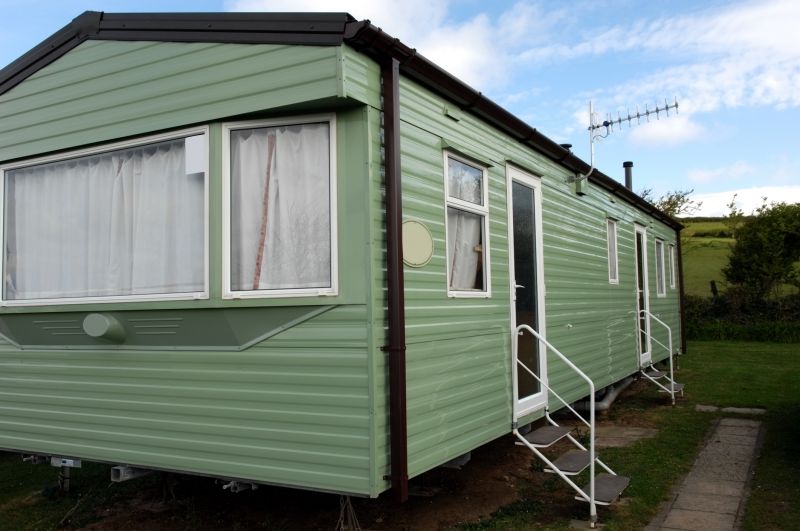Expert Picks For Mobile Home Roof Replacement Materials
Find out which roofing options professionals recommend for durability, weather resistance, and ease of maintenance.
 Replacing a mobile home roof requires careful selection of the right materials and products to ensure durability and protection. Mobile home roofs are often constructed with specific designs that accommodate lightweight materials and ease of installation. When considering replacement options, it's important to evaluate the existing roof structure, material compatibility, and the climate conditions of the area. Common roofing materials include various types of membranes, coatings, and panels that can be tailored to meet specific needs. Proper installation and maintenance are essential to maximize the lifespan of the new roof and prevent issues such as leaks, mold, or structural damage.
Replacing a mobile home roof requires careful selection of the right materials and products to ensure durability and protection. Mobile home roofs are often constructed with specific designs that accommodate lightweight materials and ease of installation. When considering replacement options, it's important to evaluate the existing roof structure, material compatibility, and the climate conditions of the area. Common roofing materials include various types of membranes, coatings, and panels that can be tailored to meet specific needs. Proper installation and maintenance are essential to maximize the lifespan of the new roof and prevent issues such as leaks, mold, or structural damage.
Top Overall Option
Liquid Roofing Coating System
A liquid roofing coating system offers a seamless, waterproof layer that can be applied directly over existing roofs. It is versatile, easy to maintain, and adaptable to various roof shapes and surface conditions. This type of product can provide an effective barrier against leaks and weather damage, making it a popular choice for mobile home roof replacements. Proper application and regular inspections can help maximize its performance and lifespan.
Types of Products For Mobile Home Roof Replacements
Liquid Roofing Coatings
Seamless, waterproof coatings that can be applied over existing roofs for protection.
Metal Roofing Panels
Durable panels made from steel or aluminum, offering longevity and weather resistance.
EPDM Rubber Membranes
Flexible rubber membranes suitable for waterproofing and weatherproofing mobile home roofs.
TPO Roofing Membranes
Thermoplastic membranes that provide energy-efficient, reflective roofing options.
PVC Roofing Sheets
PVC panels or sheets that are lightweight, durable, and easy to install.
Roof Insulation Boards
Insulation panels designed to improve energy efficiency and temperature regulation.
Roof Sealants and Adhesives
High-quality sealants for sealing seams, joints, and edges to prevent leaks.
Underlayment Materials
Protective layers installed beneath the main roofing material for added waterproofing.
Corrugated Metal Sheets
Lightweight and easy-to-install metal sheets suitable for mobile home roofs.
Roof Flashing Components
Metal or rubber flashing to prevent water intrusion around vents and joints.
Polycarbonate Roof Panels
Translucent panels that allow natural light while providing weather protection.
Bitumen Roofing Sheets
Modified bitumen sheets offering waterproofing and durability for mobile home roofs.
Popular Choices
Flexible rubber membranes are favored for their waterproofing qualities and ease of installation.
Corrugated or standing seam metal panels are commonly chosen for their longevity.
Liquid roofing coatings are popular for their seamless application and protective barrier.
TPO membranes are trending for their reflective properties and ease of installation.
PVC sheets are valued for their lightweight and weather-resistant features.
Insulation panels are increasingly used to improve energy efficiency in mobile homes.
High-quality sealants are essential for sealing joints and preventing leaks.
Polycarbonate panels are trending for their light-transmitting and weather-resistant qualities.
Modified bitumen sheets are gaining popularity for their durability and waterproofing.
The process of choosing suitable products involves understanding the different types of roofing systems available. Liquid roofing coatings, for example, can offer seamless protection and are often easy to apply on existing surfaces. Metal panels provide longevity and resistance to weather elements, making them a popular choice for mobile home roof replacements. Membrane systems like EPDM or TPO are flexible options that can conform to complex roof shapes and offer good waterproofing qualities. It's also important to consider insulation and ventilation options to improve energy efficiency and interior comfort.
Quality materials combined with proper installation can significantly impact the performance of a mobile home roof. Consulting with roofing professionals or suppliers can help identify the most appropriate products for specific needs. Regular inspections and maintenance after installation can extend the life of the roof and prevent costly repairs. Whether upgrading an aging roof or installing a new one, selecting the right products is a crucial step toward ensuring long-term protection and peace of mind for mobile home owners.
Key Buying Considerations
- Compatibility with existing roof materials and structure.
- Weather resistance and suitability for local climate conditions.
- Ease of installation and whether professional assistance is recommended.
- Longevity and expected lifespan of the roofing product.
- Waterproofing and leak prevention capabilities.
- Weight of the roofing material and its impact on the roof structure.
- Reflectivity and energy efficiency features.
- Maintenance requirements over the lifespan of the roof.
- Cost and available budget for the project.
- Availability of warranties or guarantees from suppliers.
- Ease of repair and availability of replacement parts.
- Environmental considerations, if any, related to material composition.
- Installation time and complexity.
- Compatibility with insulation and ventilation systems.
- Local building codes and regulations compliance.
